Ron Dennis on Senna - Part two: the later years
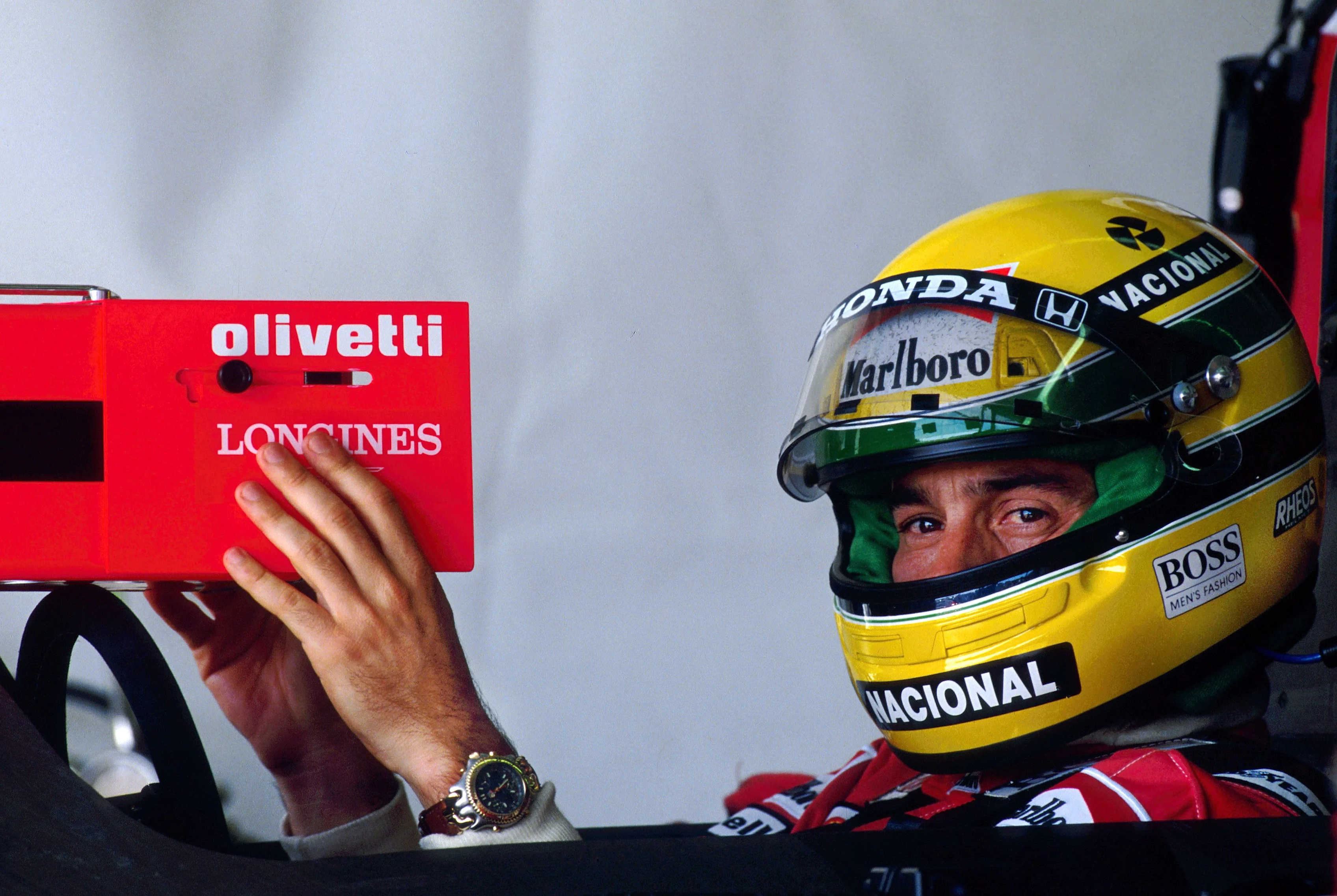
On Senna finally scoring a home victory in Brazil in 1991…
"As a Brazilian there was a degree of ‘mechanism' about it - he understood that winning in Brazil would be good for him; it would optimise his commercial position and make him an even greater hero. He had a very strong sense of value, but he was passionate as well. Of course, the crowd went berserk and everybody got caught up in it - but to me it was just another race, it just happened to be in Brazil. You know, people very often ask, ‘what's your favourite race?' and I always answer, ‘the last one we won'. So it was very important to him, but it was just another race to me."
…and then struggling physically on the podium
"All racing drivers want to feel part of the car, to such an extent that they don't want to move; they try to lock themselves in. In Brazil (in 1991) Ayrton cut his circulation to his upper body by tightening the seat belts so much, and that is why he subsequently was in a lot of pain on the podium."
On Senna's tolerance for pain
"I remember in Mexico (in 1991), Ayrton made a rare mistake and inverted himself into the gravel trap and the car was upside down and no one really knew how he was. He was taken to the medical centre and I could hear him screaming with pain.
"Sid (Watkins, F1 doctor) came out of the medical centre with a smile on his face. I said, ‘how is he?' and he said, ‘he's fine, he's not hurt. He's just a little shaken up'. I said I had heard him scream, and he said he had a big stone stuffed in his ear, where gravel had gone right up his helmet and into his ear and was giving him a lot of pain.
"His pain tolerance was an interesting part of his make-up. He had a degree of tolerance when he was driving, but less so when he wasn't. He was very conscious of pain outside the car."
On Senna's dedication to physical fitness
"Niki Lauda started realising post-accident how important fitness was, but Ayrton took it to another level. He knew very well that if he was super fit he would be a better racing driver."
On team mate Gerhard Berger's influence on Senna
"Gerhard gave me the perfect weapon to deal with Ayrton because he brought humour into the team. I would say the concept of telling a joke and Ayrton laughing was not even possible before Gerhard arrived, but then that created a massive ice breaker."
On managing Senna as the competitive advantage ebbed away from McLaren and towards Williams at the end of 1991
"If you're experienced and you know your driver, you know what levers to pull, what to say, how to say it, when to say it etc. If you do a lot of winning together you've got to be prepared to do a bit of losing together. Ayrton won 40 percent of all the races he started for McLaren, better than one in three, which is a tremendous statistic. But at the same time he would always wrestle with not being competitive.
"There was a menu of things I would say to him. If I got really frustrated I'd say, ‘If we weren't paying you so much we could spend more money on the car - Frank (Williams) is not paying his drivers a lot of money.' And then he would say, ‘Yeah but you don't have to be paid a lot of money if you've got a competitive car.' Then I'd say, ‘Hold on a second, let's go back to the fact that this is how much I've paid you over the last three years - if I was spending that on the car…' We'd go round and round. There were lots of levers you pulled."
On his fondest memory of Senna
"He gave me an envelope once - his own personal stationary - and I've still got it at home. When he gave it to me it had $10,000 in it for a bet that I couldn't eat a container of chilli in Mexico. Before he could pull the bet back, I wolfed it down. It was the fourth time that he'd lost a bet, and a big one at that. I can remember him giving me the envelope and saying, ‘I'm never going to bet with you ever again. You have got me into betting, and it's not a good thing to do!'
"It's my fondest memory for two reasons: To get a smile across Ayrton's face wasn't easy, but to get him to part with money with a smile on his face was even more difficult! It was great moment - but I paid for it a couple of days afterwards!"
On Senna having second thoughts about moving to Williams in 1994 towards the end of the 1993 season
"He was hovering, he was really hovering. But he said, ‘I've signed a contract.' I said the one thing about (breaking) a contract is you've got to prove loss, and anyway I'll underwrite anything if there's a problem. And he said, ‘Well, I've made a commitment.' But I had him on the hover on the night of the race (Australia 1993, the final round of the season).
"As we approached our last race together I could see Ayrton was wrestling with loyalty because he was leaving the team. And as disastrous as our Peugeot experience was (in 1994), the moment we had factory engines from Peugeot - which was after he left - he phoned up and said, ‘If you'd done that two months earlier, I'd have stayed'. He just could not see a way to win without having a factory engine."
On why Senna is considered by so many to be the greatest F1 driver of all time
"I think it's because he was so good for all of the period he was on the planet. I can see no positives in the fact that he had an accident and lost his life, but what you didn't see is any decline. You remember he was just unbelievably competitive and then, boom, he's not there."
On what he misses most about Senna
"The fun we used to have. Most of the time it was only Gerhard (Berger), Ayrton and myself (involved in practical jokes), but occasionally a trainer would get roped in. Most people would think I'd remember the winning. But no - that was just doing our job. It wasn't the thing it was all about.
"It wasn't just that we were having fun, it was the sophistication of the fun. What do I mean? Well these practical jokes used to get to such fever pitch.
"I remember after dinner (during a Grand Prix weekend), when one of our group got back to his hotel room, there was nothing in it. Literally nothing - no furniture, no clothes. Nothing. These kind of things are the things I remember the most - the laughter and the fun."
On Senna's enduring influence
"I raised my game because I could see the commitment he brought to his driving. Like any team situation, if someone demonstrates that you can try even harder, then you do. He showed what he was prepared to do to achieve his objectives.
"He raised my game because I think that you try to be as good as the person you are with. I liked his principles - they played to my strengths. He changed Formula One because he raised everybody's game."
Next Up
Related Articles
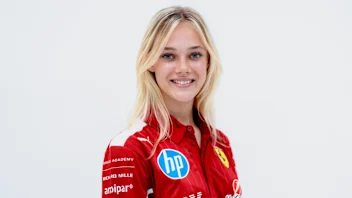 F1 AcademyFerrari sign Larsen for 2026 F1 ACADEMY campaign
F1 AcademyFerrari sign Larsen for 2026 F1 ACADEMY campaign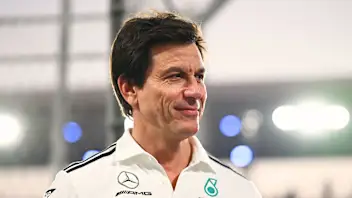 Wolff calls Abu Dhabi ‘mediocre’ but ‘pleased’ to finish P2
Wolff calls Abu Dhabi ‘mediocre’ but ‘pleased’ to finish P2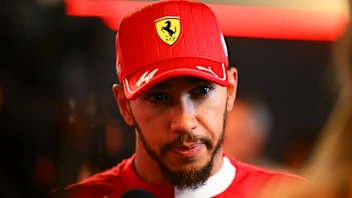 Hamilton 'doesn't have a mindset' for 2026 after tricky year
Hamilton 'doesn't have a mindset' for 2026 after tricky year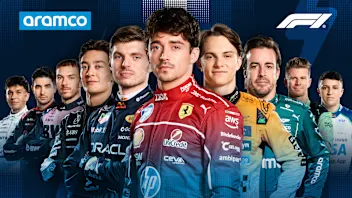 Power RankingsWho dazzled our judges at the finale in Abu Dhabi?
Power RankingsWho dazzled our judges at the finale in Abu Dhabi?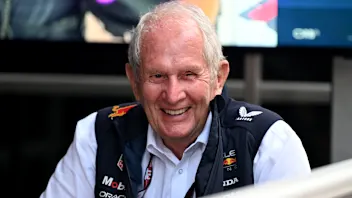 TremayneWhy ‘true racer’ Marko will be missed as he leaves Red Bull
TremayneWhy ‘true racer’ Marko will be missed as he leaves Red Bull Tsunoda's best moments in F1 as he departs the grid
Tsunoda's best moments in F1 as he departs the grid